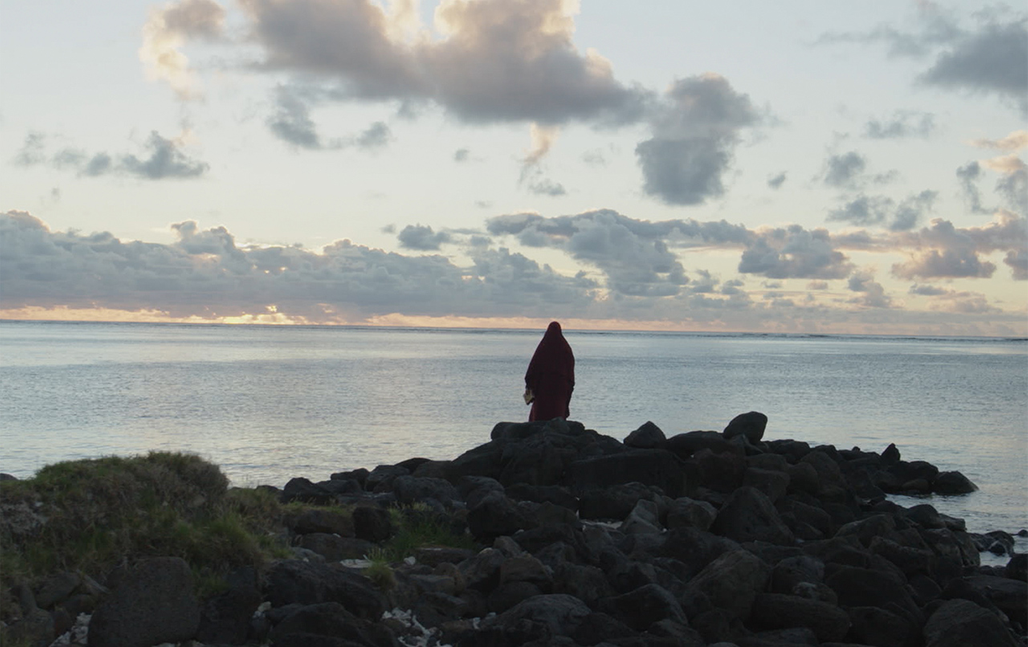
Diam’s breaks ten years of media silence with Salam

In France, everybody knows Diam’s. With four albums and plenty of hits, the rapper marked the musical landscape with her intimate, engaged and finely crafted lyrics. But in 2012, she said farewell to the stage. Ever since, information about her has been scarce, only the occasional photo of her wearing a headscarf. She reveals herself in Salam, a highly intimate documentary that she has directed with Houda Benyamina (Caméra d’or for Divines in 2016) and Anne Cissé, who responded to our questions.
How did this three-headed project come about?
Mélanie was approached by a lot of producers for movies, series and documentaries, but no one suggested that she be the one holding the camera. She met the producer Éric Hannezo, who gave her carte blanche for the film's concept. She got in touch with Houda, and they really got on well. Then I came into the equation when a screenwriter was needed to provide structure to the narration. Then, I earned Mélanie's trust and she suggested I become a co-director.
Mélanie expresses herself primarily through song in the film. How were these musical aspects conceived?
Mélanie has never stopped writing. She has a closer relationship to writing than to music. It was clear to her that she was going to speak in a poetic manner in the film. She wrote the lyrics but didn't return to music. Her words were put to music later. She wrote about subjects that were dear to her.
Psychiatry, happiness and Islam. Was it easy to tackle these subjects?
The first subject that Mélanie wanted to take up was mental health. To explain that there is hope, that you can come back from this suffering. The other subject was her conversion. A lot of things have been said on this subject, but she had never had the opportunity to express her truth, apart from her books. She did so ten years later, so with a fair bit of distance and with just the right words about her experience. Mélanie is not angry. Quite the opposite. I wasn't aware of her journey outside of music but she spoke to me of this conversion without shame, openly. She's not trying to convince but to talk about what spirituality has brought to her.
At the beginning of the film, Diam's is almost absent. Then we see her little by little, in very wide shots, which become increasingly close up…
Right from the beginning, Mélanie knew that she wanted to be in control of the way she appeared in front of the camera. She didn't want to appear frontally right from the start, but gradually. There's archival footage with her fans, then her friends and family, then we see her silhouette, before finding her with her mom, filmed at three-quarters. The idea was to show her face to face at the moment when she talks about her conversion to Islam. It's a moment that is intimate and joyful for her. She wanted to look the audience in the eyes to explain how good she felt.


